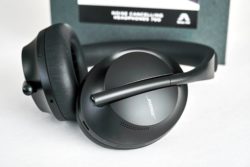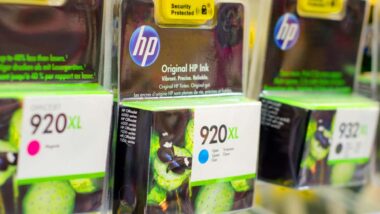Top Class Actions’s website and social media posts use affiliate links. If you make a purchase using such links, we may receive a commission, but it will not result in any additional charges to you. Please review our Affiliate Link Disclosure for more information.
Class action claims in a Bose headphones lawsuit were trimmed by a federal judge who found that the plaintiff could not establish that eavesdropping or violation of wiretapping laws occurred.
Lead plaintiff Kyle Zak alleges that his and others’ Bose wireless headphones were secretly collecting information about their users through the Bose connect mobile app. The plaintiff claims that the company then took that information and sold it to third-parties.
The Bose headphones lawsuit lodged claims of eavesdropping and wiretapping, as well as allegations that Bose violated state consumer fraud and deception laws and was unjustly enriched by failing to notify consumers that their information would be shared with third-parties.
Bose argued that the wiretap claims should be dismissed because they were based on “conclusory assertions” and not based on facts provided by the plaintiff.
The company contended that the plaintiff was simply trying to access substantial statutory fines provided under wiretap laws. The court dismissed the claims, but gave Zak the opportunity to amend the Bose headphones lawsuit.
In a recent order, U.S. District Court Judge Andrea R. Wood rejected the plaintiff’s attempt to revive the wiretap claims, as well as the class action lawsuit’s claim that Bose violated Illinois’ eavesdropping laws.
The amended complaint argued that user data was redirected by Bose to a data miner without permission or even the knowledge of the headphone users.
Bose argued that the plaintiff made “limited and superficial changes” in an attempt to revive the claims, but the additional arguments were not enough. Judge Wood agreed with the audio company.
“Zak admits that the app communicates a user’s request to the streaming service and receives and processes audio track information from that service,” noted Judge Wood in her order.
“While Zak states that Bose is not a party to the communications, that conclusory statement is contradicted by the [second amended complaint’s] factual allegations, so the court may properly disregard it.”
Wiretap laws, asserted Bose, require that an entity who is not a party to the communication disclose it. However, Bose argued it was a party to the disclosed communications between the headphones and the app and the app and the data miner.
“Zak’s slightly modified allegations about Bose redirecting communications does not change the facts,” wrote the judge in her order agreeing with the company. “Because Bose was a party to the communications, it cannot be held liable under the Wiretap Act or the Eavesdropping Statute.”

These claims were maintained in Judge Wood’s decision last year and weren’t challenged by Bose’s recent dismissal motion.
The plaintiff in the Bose headphones lawsuit claims that he and other consumers would not have paid hundreds of dollars for the high end headphones had they known that using the app associated with the product would lead to the disclosure of their listening habits to third-parties without their permission.
According to the complaint, Bose intercepted information sent between the wireless headphones and an app that allowed users to fully utilize the devices. This information allegedly included users’ private music and audio tracks, including the titles and artists. In addition, users were required to disclose full names, email addresses, phone number, and headphone serial numbers.
The plaintiff claimed that this information can be compiled to derive sensitive personal information about Bose headphone users, including their personality, behavior, political views, identity, religion, medical diagnoses, and even sexual orientation.
The Bose headphones lawsuit seeks to represent a nationwide Class of consumers who purchased one of the following types of Bose headphones: the QuietComfort 35, SoundSport Wireless, Sound Sport Pulse Wireless, QuietControl 30, SoundLink Around-Ear Wireless Headphones II, and SoundLink Color II, and who installed and used the Bose Connect app.
The plaintiff also seeks to represent an Illinois subclass.
Zak is seeking damages on behalf of the proposed Class, along with the return of the purchase price of the headphones.
Further, the plaintiff is seeking a court order requiring Bose to destroy all of the data it collected from users through the Connect app without permission, as well as prohibiting the company from collecting and transmitting user data in the future.
Do you own Bose wireless headphones? Do you think the allegations of eavesdropping in the Bose headphones lawsuit should have been allowed to proceed?
The lead plaintiff is represented by Jay Edelson, Rafey S. Balabanian, Benjamin S. Thomassen and J. Eli Wade Scott of Edelson PC.
The Bose Headphones Privacy Class Action Lawsuit is Kyle Zak v. Bose Corp., Case No. 1:17-cv-02928, in the U.S. District Court for the Northern District of Illinois.
ATTORNEY ADVERTISING
Top Class Actions is a Proud Member of the American Bar Association
LEGAL INFORMATION IS NOT LEGAL ADVICE
Top Class Actions Legal Statement
©2008 – 2024 Top Class Actions® LLC
Various Trademarks held by their respective owners
This website is not intended for viewing or usage by European Union citizens.
















2 thoughts onBose headphones lawsuit wiretap claims trimmed
please
Add